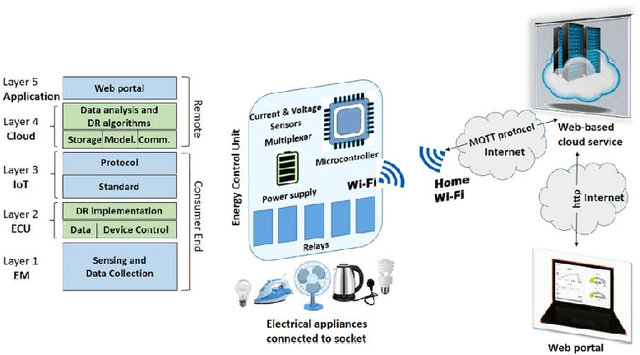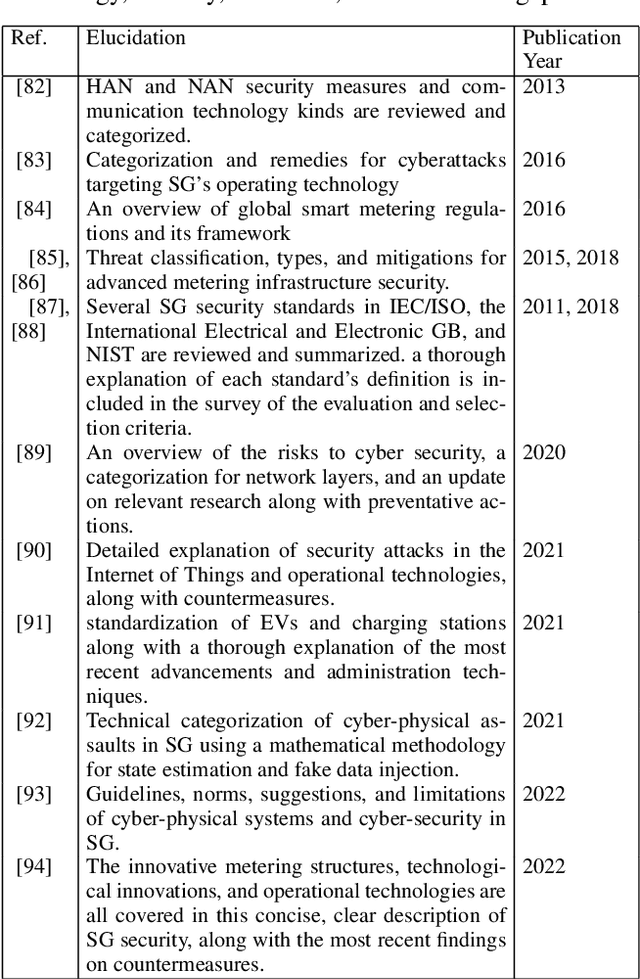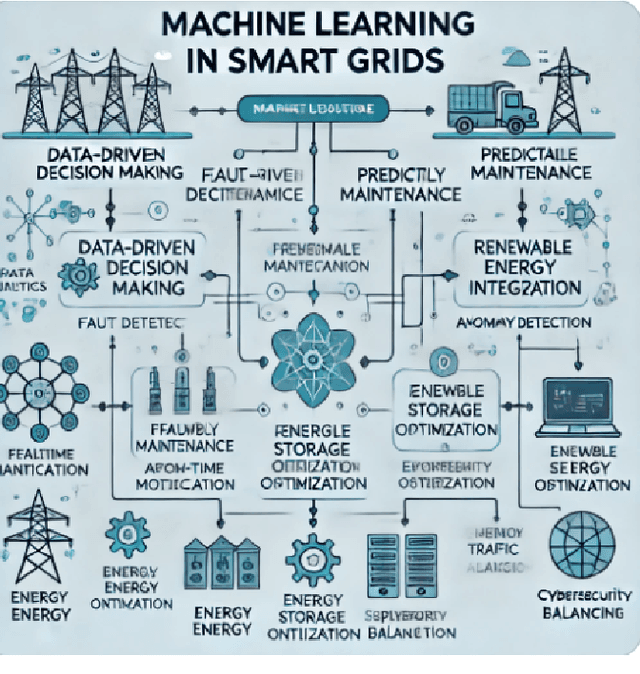abdullah al masum
An Extensive and Methodical Review of Smart Grids for Sustainable Energy Management-Addressing Challenges with AI, Renewable Energy Integration and Leading-edge Technologies
Jan 23, 2025



Abstract:Energy management decreases energy expenditures and consumption while simultaneously increasing energy efficiency, reducing carbon emissions, and enhancing operational performance. Smart grids are a type of sophisticated energy infrastructure that increase the generation and distribution of electricity's sustainability, dependability, and efficiency by utilizing digital communication technologies. They combine a number of cutting-edge techniques and technology to improve energy resource management. A large amount of research study on the topic of smart grids for energy management has been completed in the last several years. The authors of the present study want to cover a number of topics, including smart grid benefits and components, technical developments, integrating renewable energy sources, using artificial intelligence and data analytics, cybersecurity, and privacy. Smart Grids for Energy Management are an innovative field of study aiming at tackling various difficulties and magnifying the efficiency, dependability, and sustainability of energy systems, including: 1) Renewable sources of power like solar and wind are intermittent and unpredictable 2) Defending smart grid system from various cyber-attacks 3) Incorporating an increasing number of electric vehicles into the system of power grid without overwhelming it. Additionally, it is proposed to use AI and data analytics for better performance on the grid, reliability, and energy management. It also looks into how AI and data analytics can be used to optimize grid performance, enhance reliability, and improve energy management. The authors will explore these significant challenges and ongoing research. Lastly, significant issues in this field are noted, and recommendations for further work are provided.
Power Plays: Unleashing Machine Learning Magic in Smart Grids
Oct 20, 2024


Abstract:The integration of machine learning into smart grid systems represents a transformative step in enhancing the efficiency, reliability, and sustainability of modern energy networks. By adding advanced data analytics, these systems can better manage the complexities of renewable energy integration, demand response, and predictive maintenance. Machine learning algorithms analyze vast amounts of data from smart meters, sensors, and other grid components to optimize energy distribution, forecast demand, and detect irregularities that could indicate potential failures. This enables more precise load balancing, reduces operational costs, and enhances the resilience of the grid against disturbances. Furthermore, the use of predictive models helps in anticipating equipment failures, thereby improving the reliability of the energy supply. As smart grids continue to evolve, the role of machine learning in managing decentralized energy sources and enabling real-time decision-making will become increasingly critical. However, the deployment of these technologies also raises challenges related to data privacy, security, and the need for robust infrastructure. Addressing these issues in this research authors will focus on realizing the full potential of smart grids, ensuring they meet the growing energy demands while maintaining a focus on sustainability and efficiency using Machine Learning techniques. Furthermore, this research will help determine the smart grid's essentiality with the aid of Machine Learning. Multiple ML algorithms have been integrated along with their pros and cons. The future scope of these algorithms are also integrated.
 Add to Chrome
Add to Chrome Add to Firefox
Add to Firefox Add to Edge
Add to Edge